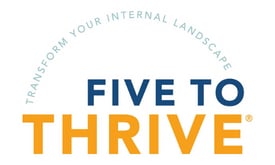Vitamin D is a hormone created by the body when skin is exposed to ultraviolet rays in sunlight. It is found naturally in a small number of foods and can also be taken as a fat-soluble dietary supplement.
Vitamin D at a glance
Vitamin D is a hormone that is created by the body with ultraviolet B (UVB) exposure from the sun. It can also be taken as a fat-soluble supplement in either softgel or liquid form and is found naturally in some foods.
Although definitions of deficiency vary, blood levels below 20 ng/mL are generally considered deficient in vitamin D with regard to cancer risk and outcomes. Higher risk of vitamin D deficiency is seen during the winter, among females and people living at higher latitudes (closer to the earth’s poles than to the equator), and among people with dark skin, a history of diabetes, sedentary behavior, or who smoke.1McCullough ML, Weinstein SJ et al. Correlates of circulating 25-hydroxyvitamin D: Cohort Consortium Vitamin D Pooling Project of Rarer Cancers. American Journal of Epidemiology. 2010 Jul 1;172(1):21-35. Children with cancer may be at higher risk of low vitamin D levels.2Revuelta Iniesta R, Rush R et al. Systematic review and meta-analysis: prevalence and possible causes of vitamin D deficiency and insufficiency in pediatric cancer patients. Clinical Nutrition. 2016 Feb;35(1):95-108.
Some research has found that vitamin D in the body reaches an optimum level regarding cancer risk starting at 20 ng/mL (50 nmol/L) and may have an upper limit below 40 ng/mL (100 nmol/L) for men. (Always check the unit used if your vitamin D levels are tested, as two different scales are used.) Higher levels than that are not always better and may even carry risks. Upper limits of optimal levels are unknown for women.
Use of some chemotherapy drugs is linked to lower plasma levels of vitamin D. Other drugs are also linked to low vitamin D levels, such as H2 blockers and rosuvastatin.3Gao Y, Shimizu M, Yamada S, Ozaki Y, Aso T. The effects of chemotherapy including cisplatin on vitamin D metabolism. Endocrine Journal. 1993 Dec;40(6):737-42; Fakih MG, Trump DL et al. Chemotherapy is linked to severe vitamin D deficiency in patients with colorectal cancer. International Journal of Colorectal Disease. 2009 Feb;24(2):219-24; Jacot W, Pouderoux S et al. Increased prevalence of vitamin D insufficiency in patients with breast cancer after neoadjuvant chemotherapy. Breast Cancer Research and Treatment. 2012 Jul;134(2):709-17. You might want to have your vitamin D levels checked before, during, and after using chemotherapy. If your levels are low before starting chemotherapy, talk with your doctor about using vitamin D supplements.

Five to Thrive Podcast: The D Factor: Vitamin D’s Role in Cancer ›
Listen to our conversation with Dr. Lise Alschuler, naturopathic oncologist, about what we found in our research on vitamin D and cancer. Featuring Nancy Hepp, MS, former Research Lead at CancerChoices, and Laura Pole, MSN, RN, OCNS, Senior Clinical Consultant at CancerChoices.
CancerChoices ratings for vitamin D
We rate vitamin D on seven attributes, with 0 the lowest rating and 5 the highest. We rate the strength of the evidence supporting the use of vitamin D for a medical benefit, such as improving treatment outcomes or managing side effects.
See how we evaluate and rate complementary therapies ›
References
